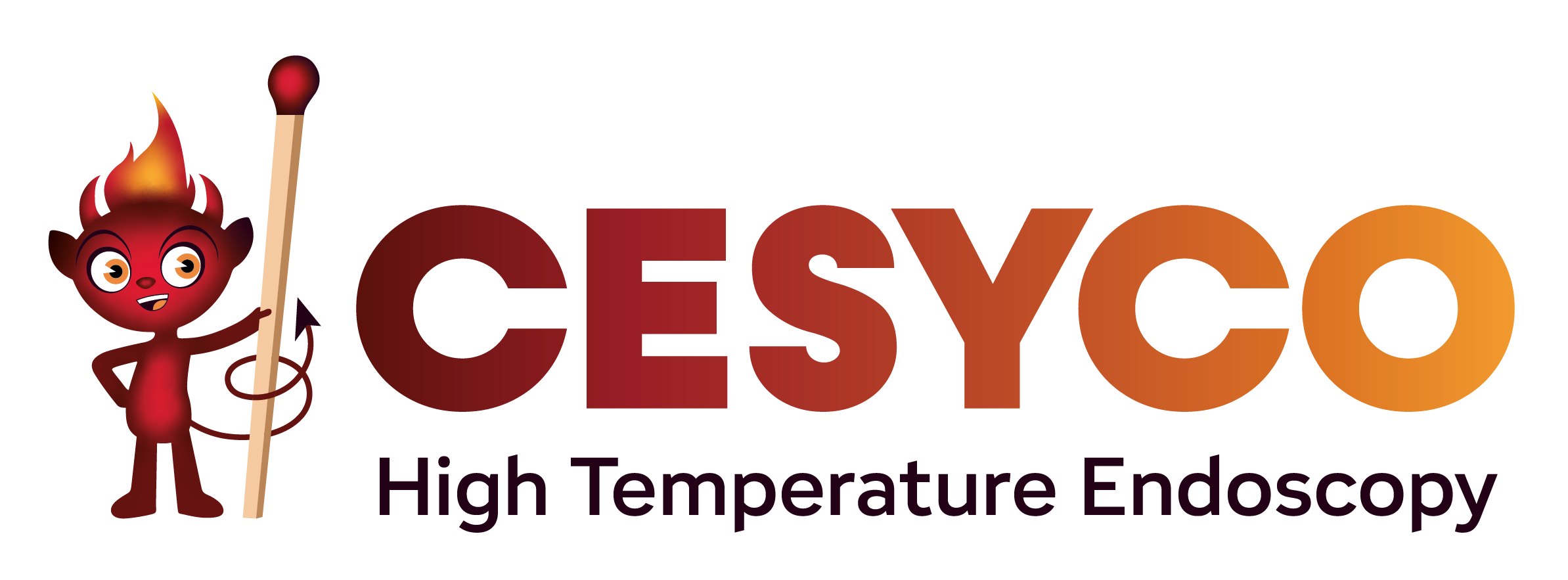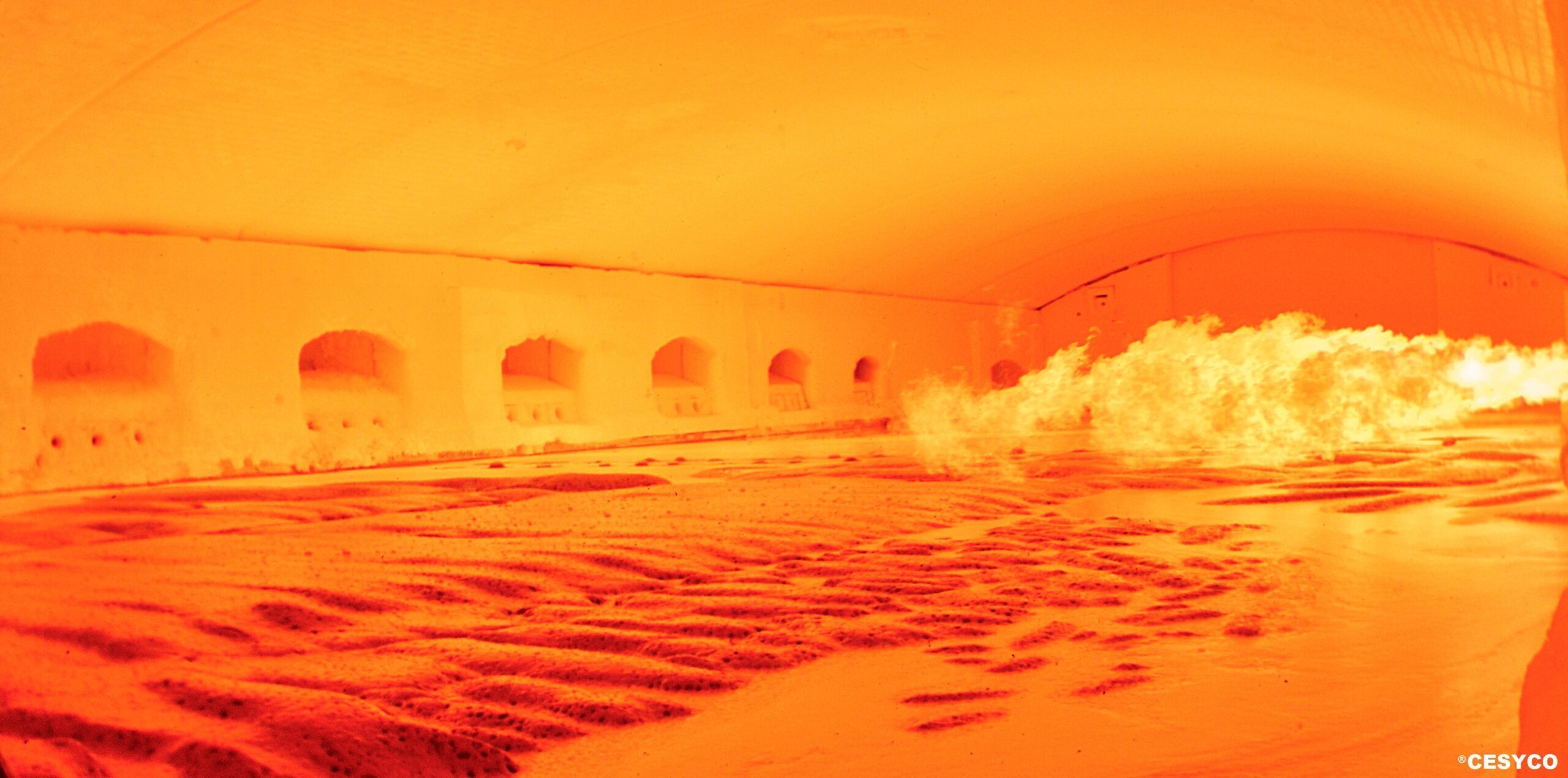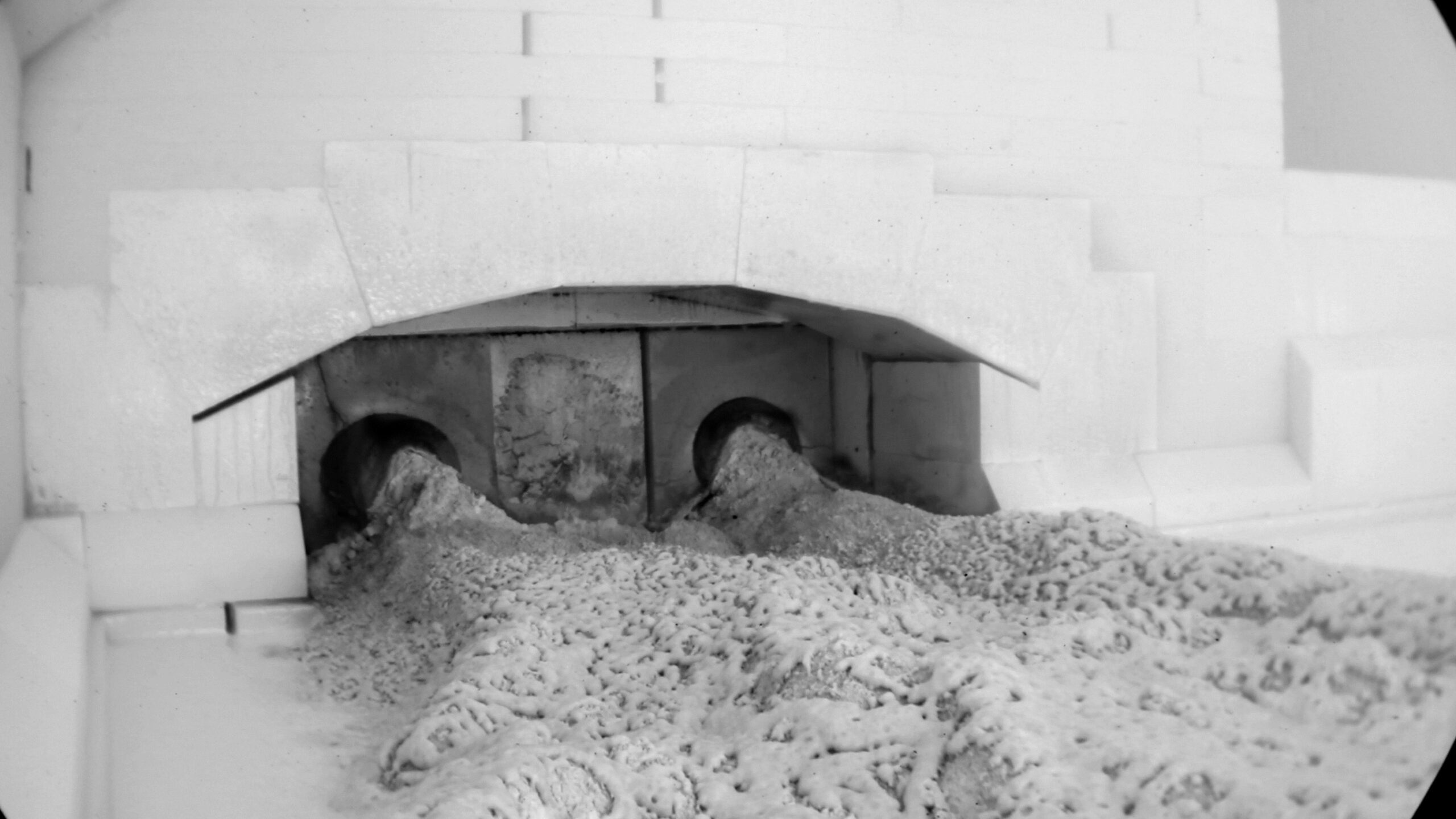The glass industry is one of the most demanding sectors in terms of production conditions, combining extreme temperatures, continuous processes and high quality requirements. The slightest failure can result in significant losses, both financial and productivity. In this context, industrial endoscopy has emerged as a key technology. By enabling precise monitoring and maintenance, this method revolutionizes production processes and provides glassmakers with tools to meet the challenges of everyday life.
Fault prevention:
By identifying anomalies early, it reduces the risk of costly shutdowns.
Increased security:
It limits the exposure of operators to hazardous environments.
Maintenance optimization:
Predictive approach to plan repairs before critical stage.
Operational efficiency:
Processes monitored in real time without interrupting production.
Technology adapted to extreme environments
Glass kilns, the heart of production, operate continuously at temperatures above 1600°C. These extreme conditions require tools that can withstand heat and corrosion. Industrial endoscopes allow:
Continuous monitoring of melting processes: Real-time analysis of molten materials to ensure consistent quality.
Wear control of refractories: Regular inspections prevent wall failures and extend their service life.
Production parameters adjustment: The collected data helps to optimize heat flows and improve productivity
Hot repairs and operational continuity
Shutdowns in the glass industry are costly and often unplanned. Portable endoscopes offer a practical solution by allowing hot repairs, such as ceramic welding (or gunitage), without process interruption.
Targeted inspection: Precise identification of areas requiring intervention.
Quick repair: Reduced intervention times thanks to a clear view of the inside of the oven.
Minimization of financial losses: Hot repairs avoid extended downtime and maintain operational continuity.
Measurable results
The benefits of industrial endoscopy in the glass industry are numerous:
- Reduction of defects in finished products: Better process monitoring reduces irregularities and ensures consistent production.
- Longer equipment life: Proactive maintenance protects furnaces from premature wear.
- Improved energy efficiency: Optimizing heat flow reduces energy losses and operational costs.
sectors dependent on industrial endoscopy :
Verrerie
Inspection of glass furnaces to monitor the melting of raw materials and detect wear of refractories.
Sidérurgie et métallurgie
Control of burners and slab furnaces to ensure homogeneous production.
Énergie
Diagnostics of boilers and incinerators to identify obstructions and maintain thermal efficiency.
Cimenterie
Verification of rotary kilns to prevent blockages and optimize combustion.
Pour conclure :
In the glass industry, where every detail counts, industrial endoscopy plays a crucial role in ensuring continuous monitoring, rapid repairs and process optimization. By investing in this technology, glass companies are not only maintaining their competitiveness, they are also enhancing their operational sustainability and ability to meet the highest quality standards.
With tools such as those developed by CESYCO, the glass industry can meet the technical and economic challenges of tomorrow while guaranteeing exemplary performance.



